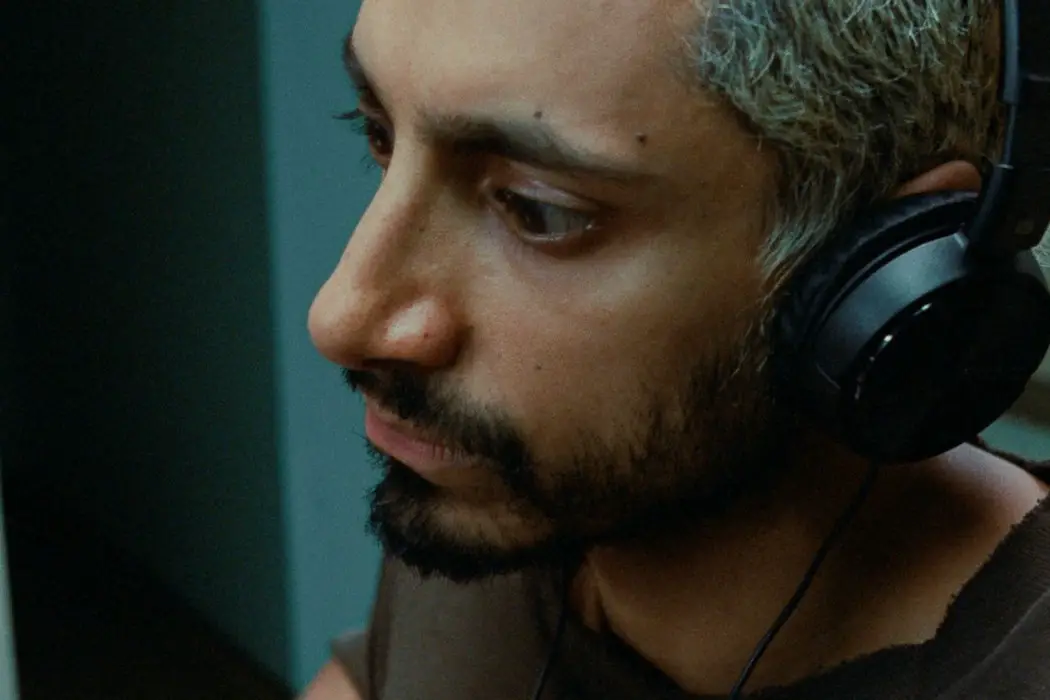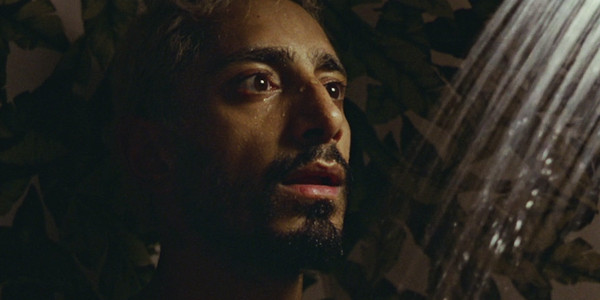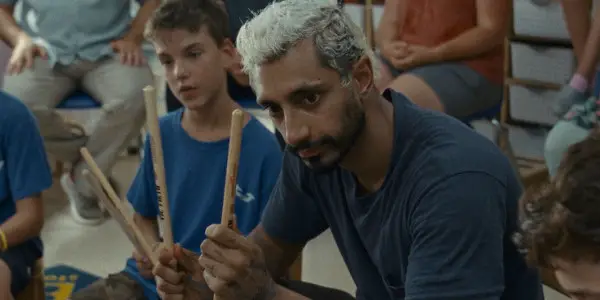Interview with Mikkel Nielsen, Editor of SOUND OF METAL

Luke Parker is an award-winning film critic and columnist based…
While Darius Marder‘s significant debut as a director is titled Sound of Metal, there’s an old Simon & Garfunkel tune I know that may fit the bill a bit better.
The film, which follows a passioned drummer (Riz Ahmed) who loses himself soon after losing his hearing, spends a great deal of time in silence. But it’s not just silence. It’s a carefully orchestrated collection of mute buffs and static, all designed to place the audience inside the isolated mind of the movie’s main character, Ruben.
Film Inquiry recently had the chance to speak with editor Mikkel Nielsen (Beasts of No Nation) about the production’s unique approach to telling a story from the deaf perspective.
This interview has been edited for clarity.
Luke Parker for Film Inquiry: As an editor, tell me about your initial impressions of the project because while editing is an important part of any film, your role in presenting and completing this narrative is certainly heightened.
Mikkel Nielsen: I mean, it was an interesting approach because I wondered how we’d get inside Ruben’s head, and also how we’d make a culture understand the whole film without the audio experience. All those elements of the film were super intriguing to me as an editor, trying to figure out how to accomplish all of that.

So, the film should basically be for everyone, right? But everyone watching will have a different experience. Working as an editor, you’re kind of the guide for the audience. You try to hold their hand through the whole film and help them explore something they haven’t seen or tried before. But we also want to find a way to take you inside of Ruben’s head.
I think you’d agree with me on this, but I thought the best and most interesting thing sound does for this film is establish perspective. There are some scenes where the point-of-view shifts solely on what we in the audience are able to hear. How did you and Darius decide or pinpoint when to use audio and when to flip the switch, so to speak?
Mikkel Nielsen: It’s important that you understand the story and the arc of the story. You have to set up the relationship between two characters that care about each other because it’s one of Ruben’s drives. Therefore, we have to believe in that whole relationship with Lou, and once we have created that sense of character, that’s when we can shift perspective.
What’s really important, and what I worked the most on was figuring out how to stay with Ruben the whole time. This has to be from Ruben’s perspective. Even when it’s not his scene, I have to stay with him. I can’t go with Lou because then it will be Lou’s film. I have to stay with Ruben.
You keep talking about getting inside Ruben’s head, and the film audibly charts his progressing hearing troubles. Can you talk about how you designed the different stages of deafness?
Mikkel Nielsen: I would have to say that most of that was done in sound afterwards, but we did work with the aspect of Ruben losing more and more of his hearing. It was more about when we wanted to be inside of his head and when we wanted to be outside of his head. Throughout the film, we want you to experience the same thing Ruben is experiencing. But they shot the scenes several different ways so that we could play with them.

When you were determining whether to stay inside of his head or outside of his head, what kind of effect were you looking for in a particular scene?
Mikkel Nielsen: First of all, I would just cut the sound. Then I’d play the scene without the sound, like a silent movie, to understand what I needed to hear. Then there’s that whole thing about the inner, emotional journey of the character. Instead of using music, we used that particular sound of these noises, these “how does it feel to be Ruben” sounds.
But we always wanted to play with the feelings of the audience. Like, I can experience nature. But if I’m with Ruben, I can’t. I can experience a guy snoring – he might be blind and he might be everything – but I can experience him snoring. Ruben can’t. When I see the man through Ruben’s eyes, or with his ears, I can’t see anything. I can’t hear anything. It’s silent, which makes the audience more and more frustrated with this “what is going on?” mentality. So you experience his way of looking around.
It’s incredible to watch because he doesn’t have that ability to experience, so to speak, but he learns how to adapt his ability to experience. It’s great to watch.
Mikkel Nielsen: Completely.

I feel like when people think of what cinema is, what makes it so compelling, or what “movie magic” is made of, it all boils down to the manipulation of sight and sound. But while film is generally regarded a visual medium, sound is what’s used most tactfully and effectively here. As you were piecing together this more audio-centric film, did you make any adjustments to your editing style?
Mikkel Nielsen: You don’t really adjust to any edit style. I’m supposed to be able to edit any kind of movie, hopefully. But it’s more about the journey with those people who have ambition. Darius Marder had this project that he wanted to try and create and I play around with it to show him a different way of doing things. It’s a collaboration, and then Nicolas [Becker], as a sound designer, can say “that’s interesting what you did, but how about trying this?”
Nothing is right or wrong in editing. You should turn every stone and try everything. No idea is stupid.
Film Inquiry thanks Mikkel Nielsen for his time.
Sound of Metal is now available to stream on select virtual cinemas, and will premiere on Amazon Prime Video December 4th.
Watch Sound of Metal
Does content like this matter to you?
Become a Member and support film journalism. Unlock access to all of Film Inquiry`s great articles. Join a community of like-minded readers who are passionate about cinema - get access to our private members Network, give back to independent filmmakers, and more.
Luke Parker is an award-winning film critic and columnist based in the Baltimore-Washington metropolitan area. As an entertainment journalist, he has interviewed several members of the film industry and participated in some of its most prestigious events as a member of the press. Currently, he is working to obtain his bachelor’s degree in Mass Communication at Towson University.













